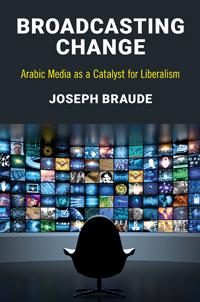Iran critics give Trump’s JCPOA decertification mixed reviews, while Russia rewards Saudi Arabia for warming relations. To subscribe to this daily roundup by Mideast specialist Joseph Braude, click here.
The new White House strategy on Tehran is more savvy than its critics claim, writes Amir Taheri in Asharq Alawsat …: “Had he renounced the JCPOA in a formal way, Iran’s leaders could have cast themselves as victims of ‘imperialist bullying’ and deployed the Europeans . . . to fight in their corner. Now they cannot do that because all that Trump is demanding is a stricter application of the measures that the EU and others say they mean to defend. … [The measures, he writes, amount to a more holistic view of relations with Iran, to include accountability on support for terror, human rights violations, and hostage-taking.]
But Eli Lake at Bloomberg sees a betrayal of Trump’s promise to nix the JCPOA: “Trump fails to address the greatest threat the rogue regime poses: its expansion in Syria and Iraq. … In some ways Trump’s decisions to date have exacerbated Iranian expansion, particularly in Syria. … Iran’s Revolutionary Guard is close to establishing a land bridge from Tehran to Beirut, giving groups like Hezbollah and other militias access to advanced weapons they can aim at Israel and Jordan. Sanctions are a good first step. But Trump needs to do more, and quickly.”
Asia Times notes a twist in Russian-Saudi relations. “Remarkably little comment attended the strangest outcome of Saudi King Salman’s four-day visit to Moscow in early October, namely Russia’s sale of its top-of-the-line S-400 air defense system to a country whose relations with Russia have been hostile until recently. It was strange because Iran, habitually characterized as Russia’s “ally” in Western media, was permitted to purchase a much older and inferior Russian system, the S-300.” [The article suggests that Russia has taken a chapter out of China’s Mideast playbook in balancing arms sales to rival parties.]

Speak Your Mind